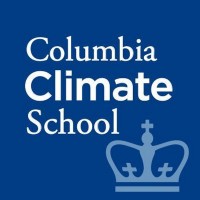We encourage research proposals for topics from all areas of sustainable development and climate research for the postdoc program. This year, we are particularly interested in the following thematic areas, which we see as priorities for addressing some of the global challenges that the Climate School is working to address:
The Food Transition
The globally intertwined food system both contributes to climate change and is highly vulnerable to changing weather patterns. This initiative develops and disseminates robust evidence on sustainable pathways for food system transition, working closely with stakeholders locally and globally.
Coastal Viability
Coastal regions around the world face significant risks due to sea level change, both rising and falling. This initiative leverages fundamental research in sea level and coastal science to develop solutions and partnerships with local communities and governments to create a path to a more resilient future.
Energy Storage
Columbia is working to increase capabilities in battery technology, including improvements in performance, finding new materials for batteries that do not depend on rare metals, and understanding the intersection with the grid.
Carbon Management
Columbia pioneered the scientific research and technological innovation for carbon removal and its sequestration into rocks, and is working to find new technologies for removing, transporting, and storing carbon.
Artificial Intelligence (AI) and Climate
Columbia has world-leading teams of climate modelers who develop precise methods for predicting the future under specific scenarios. These methods allow us to understand and map the changing world, including the impact of climate solutions and interventions.
Disaster Resilience
Catastrophic events amplified or triggered by climate change lead to mass casualties, trauma, economic damage, and political instability. This initiative develops techniques to improve disaster preparedness, prevention, prediction, response, and resilience across societies.
Climate Finance and Risk
Columbia’s team of leading scholars is developing the field of climate finance to understand the levers and resources required to support pathways toward decarbonization.
Climate and Environmental Justice
Climate variability and environmental sustainability dilemmas present unique challenges for various demographic groups inside and among countries and regions. It is critical that responses to climate and environmental challenges be informed by the needs, rights, histories, and visions of the future of groups who will be impacted by a particular policy or technical solution.
Other Information/Terms & Condition
To apply to the program candidates must submit the following documents:
- Online Application
- Curriculum Vitae
- Brief Personal History
- Research Proposal
- 3 Recommendation Letters
In addition to submitting the application and proposal, applicants are encouraged, but not required, to contact their desired multidisciplinary mentoring team, i.e. two or more senior faculty members or research scientists/scholars at Columbia University with whom they would like to work during their appointment. Please note that an endorsement from a faculty member or researcher does not guarantee acceptance into the program.







